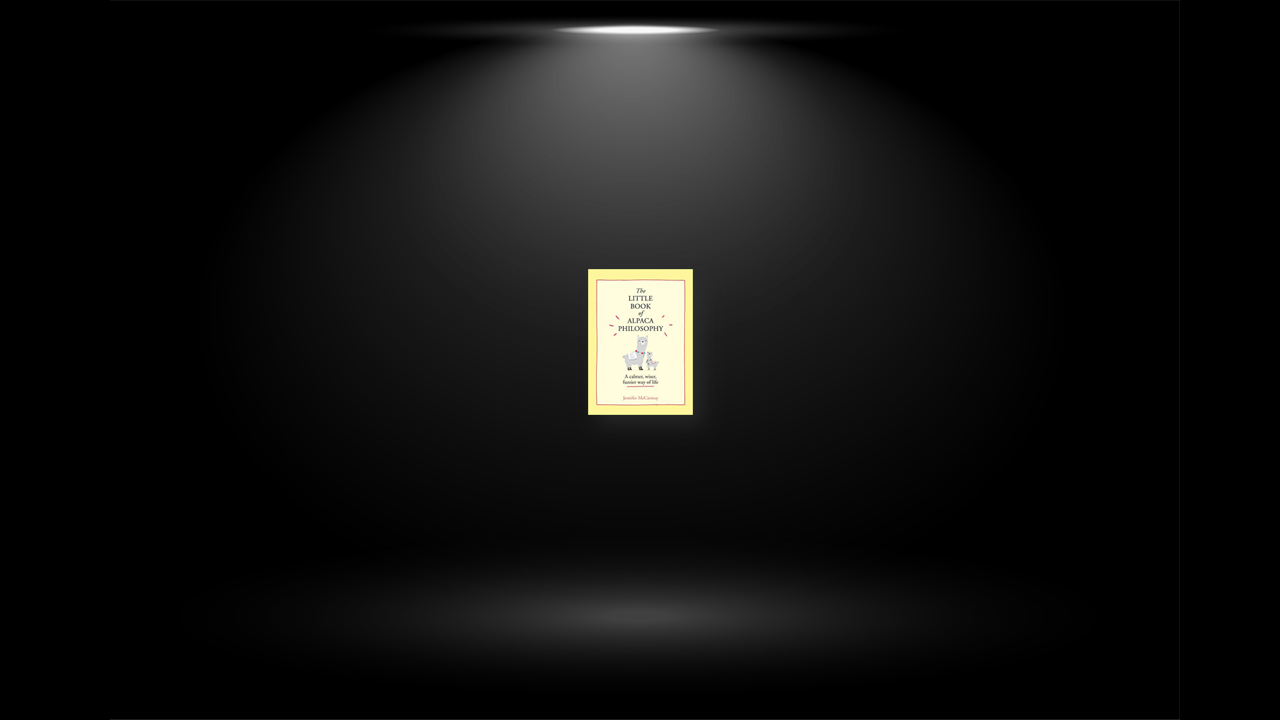Welcome to the Alpaca Philosophy
The world is a busy place. There’s lots of stuff going on that we all care about – the climate crisis, getting good grades and good jobs, washing behind our ears.
In a world of serious overachievers, opinion-havers, Insta-posters and posers with must-read hot takes and commentary on everything and everyone, it can be tough to be a person who likes to just chill and observe. It feels like you’re not accomplishing much. You’re not contributing to the cacophony, taking a stand or standing out. And you’re certainly not building an audience.
But there are loads of us out there – people who prefer to read up, make plans, have lengthy, face-to-face discussions, rather than brief online interactions. People who like to consider all the angles, other people’s feelings, the past – and what that means for the future. People who prefer to move a bit more slowly and considerately through the world – or would like to. People who prefer conversations to declarations, long walks to short sprints and the whole bottle rather than just a quick glass. People who prefer the book to the movie (the longer the book, the better).
Luckily, the alpaca philosophy is here to teach us. It is the secret to living a better, deeper, more fulfilling life. Or at least to chilling out – just a tiny bit. Why alpacas? Because alpacas are the best, most resilient and most interesting animals on the planet. More contemplative than the relaxed sloth, more discerning than the playful otter, the alpaca is like the Dalai Llama1 of animals. Until now, they’ve taken a back seat to more flashy creatures (looking at you, nonsensical unicorn), but The Little Book of Alpaca Philosophy seeks to change all that, and introduce these incredible animals – and their wisdom – to the world at large.
Generally, the alpaca is erudite and kind. A bit of an individual (meaning a tad weird). Observant and mellow. It lives a domesticated life of quiet contemplation high in the mountains of South America. A life of reflection. Empathy. Gentle interactions with its fellow herd members. Alpacas are also big on using body language to communicate, which means they’re not online a lot. And they’ve been domesticated for thousands of years, so they’re used to getting along with one another, coexisting peacefully with other alpacas and humans alike. They’re also neat and organised (helpful when you’re living with others) and they’re easily trained – as long as you’ve got food as a reward. They’ve also got great hair. What better role model is there?
Follow the CLIMB Method for a Calmer and Wiser Life
C
Check out. This key step in the alpaca philosophy is about gaining perspective. The kind that only a bit of time can bring. It’s not about giving up or checking out for good. It’s about giving yourself permission to not react right away. It’s about stepping back, allowing yourself some time to calm down and figure out a game plan and then returning to the issue with a more balanced viewpoint. You’ve heard the advice about not sending that email when you’re angry? It’s because often, when you come back to that same email the next day, whatever it was that made you mad isn’t quite so clear any more. In fact, the email you’d write the next day can look very different and is often much more productive than the one you wanted to send in anger. The idea is to avoid putting anger and careless words out into the world if you possibly can.
L
Log out and let it go. This is another version of the above step. But whereas checking out usually involves checking back in at some point to deal with something that needs addressing, logging out and letting go is about, well, exactly that. Take a step back. Log out of your email or social media accounts for a few hours or a few days – whatever you feel you need. And rejoin the non-virtual world. Make a cup of tea. Trim your nails. Look at a bird. Remember what it’s like to be a person occupying and existing within a physical space. Think about what’s important to you and what’s worth your time and energy. And if things are not worth either of those resources, then let them all go. Let go of anything that doesn’t need your attention. Everything that doesn’t need a response from you; and whatever can be ignored, whatever won’t matter in an hour, a day, a year, on your deathbed. The online stuff. The work stuff. The slights and current events that need your urgent point of view (they don’t).
I
Imagine it the other way around. This step is a great empathy builder. It’s also another way of saying don’t judge until you’ve walked a mile in another person’s shoes/hooves. It’s tough being a person. It’s probably tough for that other person to be a person, too. We’re all trying to get by. We’re all muddling along, struggling to pay bills, fall in love and stay in love, get a job and keep a job. We’re all complicated, mixed-up people with lots of weird bits of emotions, contradictory thoughts and unique points of view floating around inside us. So next time you’re feeling upset at someone else’s actions, take a minute to wonder what they may have been thinking. If at all possible, assume they were acting with good intentions. Maybe you can even take the view that they are just a little bit ignorant – many people are. And, if possible, assume that it’s all good and it’s not your job to put it right. Let go of your need to correct, chastise, call out or take on the responsibility for educating people whose minds are likely already made up. Acknowledge that other people feel differently from you, and that’s ok. Infuriating, but ok.
M
Meet halfway. This is both literal and figurative. If you’re meeting someone for drinks or a dinner, always pick a spot in the middle. It’s the nice thing to do and it means you’re both making an equal effort to get there. This also applies to arguments, discussions, disagreements, apologies. Try and see the other person’s point of view and acknowledge it. Generally, don’t be an utter cock about stuff. One of the first things we learn about when we’re little is the importance of compromise. This step is about acknowledging that this is just as important for us as adults, too.
B
Be kind. This is self-explanatory. There’s a reason why we’re so desperate for videos of strangers doing nice things for one another. Oh, look, someone helped that lady across the street when she was confused! Oh, look, someone bought that man a pair of shoes when he was in need! And while posting videos of good deeds is a bit of a show-off thing to do, their popularity proves that we all feel pretty happy when other people are nice to each other and to us – and when we’re nice to other people, too. Obviously, some people who were raised in barns (rather than in the civilised peaks of the Andes) are very rude and that sucks a lot, but it’s part of life. Anyway, the more people choosing to be kind the better. And it starts with you.
Alpacas Never Say Goodbye
They know they’ll see you again sometime. And if not, that’s also cool. Life is short. Keep calm and carry on. And always remember to enjoy the view. Because the fact is, the world is better than it’s ever been before. This is very general, of course. Some places are worse. But overall, thanks to modern medicine, technology and progressive policies protecting our most vulnerable populations, we are better off today than at any point in human history. We have more access to clean water, technology and education than our ancestors ever did. On the whole, we live longer, healthier lives.
So if you’re wondering why everything feels worse, more helpless, more dysfunctional, take a breath or two. If you don’t know where to turn, how to make a difference, how to operate in a world where there are so many short-term distractions, how to quell the rage, how to take a step back and gain some perspective, how to move forward with hope and enlightenment … just remember: no one has any idea, really. But books can help. Hopefully, this one did the trick. And perhaps you learned something about alpacas. So if you find yourself struggling or in need of a bit of enlightenment, just remember to CLIMB. Or have a nap. That works, too.


